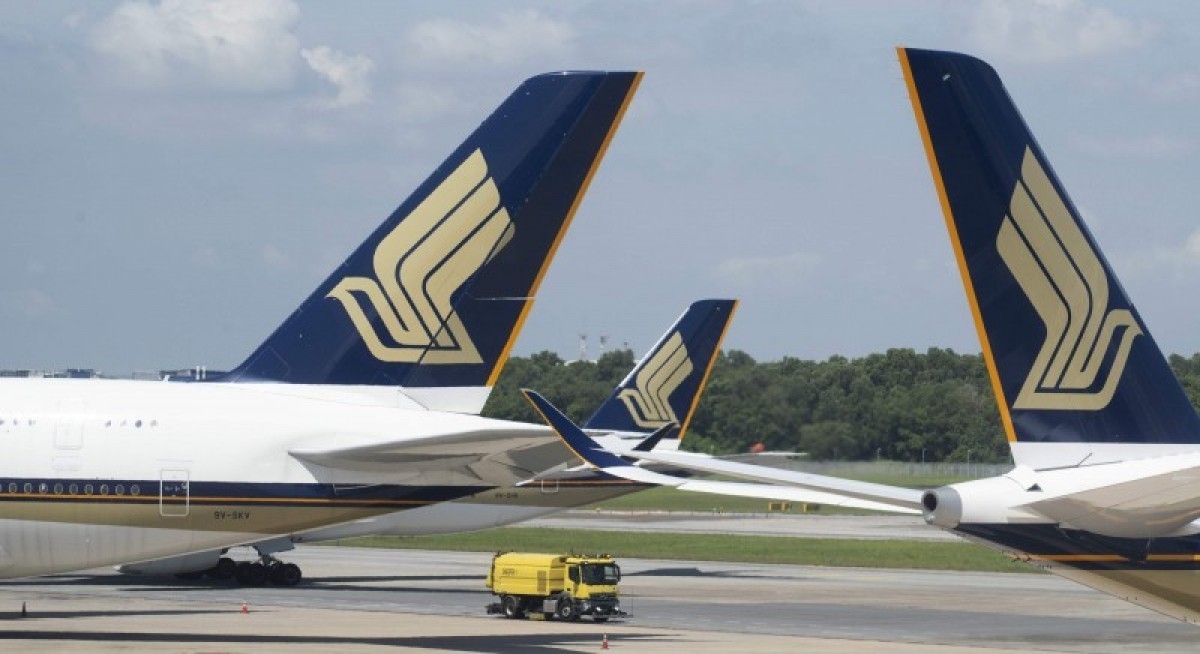Singapore Airlines Shares Sink Over 8% Amid Steep Drop in Q1 Profits
Singapore Airlines Shares Sink Over 8% Amid Steep Drop in Q1 Profits
By
Calder Monroe
Last updated:
July 29, 2025
First Published:
August 6, 2025

Photo: The Edge Singapore
Singapore Airlines Takes a Hit as Profits Tumble 59% in First Quarter
Singapore Airlines (SIA) shares dropped sharply on Monday, plunging more than 8% following a dismal earnings report that revealed a 59% decline in net profits for the first quarter ending June 30. The stock saw its steepest intraday fall since August 2024, ending the day down 7.11%, according to LSEG data.
The carrier posted a net profit of S$186 million (US$144 million)—a steep fall from the previous year’s performance. The decline was largely due to lower interest income, reduced cash reserves, and significant losses from its associated companies, particularly Air India.
Financial Breakdown: What Went Wrong?
Operating profit for the quarter came in at S$405 million, down 13.8% year-over-year, underscoring the mounting pressures SIA faces despite a strong travel recovery.
SIA attributed the profit slide to a combination of factors:
- Lower interest earnings due to decreased cash holdings
- Cuts in interest rates
- Transition from recording a profit to incurring a loss in associated companies, especially Air India
The airline noted in its earnings release that while operational revenues remain relatively stable, these financial headwinds have significantly impacted net results.
Air India’s Deepening Losses Add Fuel to the Fire
SIA’s exposure to Air India continues to weigh heavily on its bottom line. The group holds a 25.1% stake in Air India following the 2024 merger with Vistara—its former joint venture with Tata Sons. While the merger initially boosted SIA’s full-year profit to a record S$2.78 billion, the most recent quarter paints a different picture.
Air India’s performance deteriorated after a high-profile Boeing Dreamliner incident in June, which led to a 20% drop in bookings across both domestic and international routes. Fare prices reportedly fell by 8–15%, while cancellations surged, particularly among business travelers and premium leisure customers.
DBS Bank analyst Tabitha Foo told CNBC that Air India’s losses were "significantly deeper than expected," and warned that they are unlikely to improve in the near term given the carrier’s restructuring and reputational challenges.
Even though many costs related to the aircraft incident are likely covered by insurance, Air India remains a short-term drag on SIA’s financial health.
Industry Pressure Mounts Amid Strong Travel Demand
Despite the earnings miss, Singapore Airlines stressed that demand for air travel remains robust—especially during the summer season across most regions. The airline also said its cargo demand continues to face headwinds, with revenue from that segment declining nearly 2% due to capacity growth outpacing load factor improvements.
Morningstar’s Lorraine Tan observed that SIA’s operating margins are normalizing from pandemic highs, with increased fleet deployment and competitive pressure presenting challenges over the next few years. However, she noted that softer oil prices could help cushion the impact of rising costs elsewhere.
SIA maintained that its diversified route network and verticals provide resilience against regional slowdowns or trade disruptions, though the group acknowledged the volatile global operating environment, citing geopolitical instability and lingering supply chain uncertainties.
Analysts React: Is the Stock Overvalued?
Not all analysts remain optimistic. Maybank Investment Bank has downgraded SIA’s stock to “Sell,” citing weaker cargo performance and higher-than-expected operating costs. Analyst Eric Ong warned that the stock price had "run ahead of its fundamentals," trimming profit forecasts by 25–29% for the next three years.
Maybank’s revised target price is S$6.75, notably below the current trading price of S$7.08.
A Turbulent Road Ahead
While Singapore Airlines remains a formidable player in Asia’s aviation landscape, its latest quarterly report shows that challenges are mounting—from investment risks tied to Air India, to softer operating margins, and increased cost pressure. Although travel demand is strong, investors are watching closely to see whether SIA can maintain its industry position without sacrificing profitability in the quarters to come.
Popular articles
Subscribe to unlock premium content
Disney’s Timeless Magic and How the Entertainment Giant Continues to Shape Culture and Innovation

Imran Khan’s Economic Missteps Amid Political Chaos in Pakistan

The Philippines’ Digital Shift How Remittances and BPO Are Fueling Growth

Disney’s Timeless Magic and How the Entertainment Giant Continues to Shape Culture and Innovation

Imran Khan’s Economic Missteps Amid Political Chaos in Pakistan

Disney’s Timeless Magic and How the Entertainment Giant Continues to Shape Culture and Innovation









